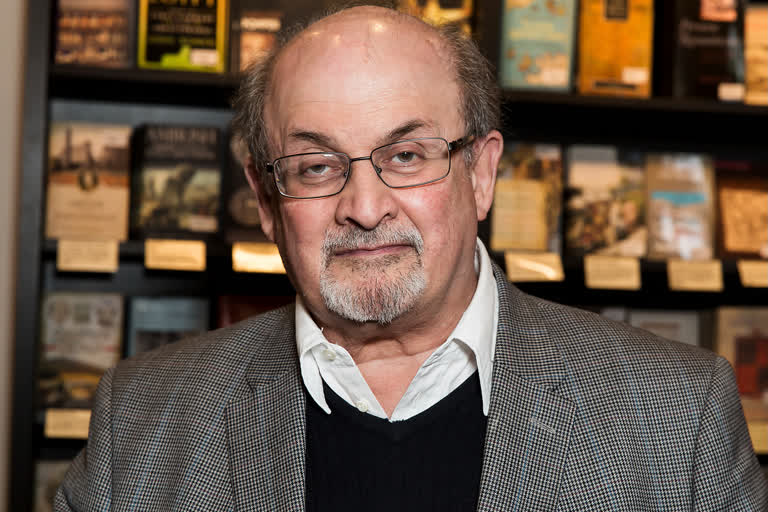New York:A Booker Prize that catapulted him to the pantheon of global literary stalwarts to a fatwa by Iran's Supreme Leader that forced him into hiding and years of death threats, Mumbai-born author Salman Rushdie was both idolised and demonised for a singular trait that defined his life and works -- championing free speech.
More than 33 years after Iran's Supreme Leader Ayatollah Ruhollah Khomeini issued a fatwa ordering Muslims to kill him, Rushdie, 75, was stabbed onstage in front of a stunned and shocked audience at a tranquil literary institution in western New York State where he was about to speak at an event for a discussion of the United States as asylum for writers and other artists in exile and as a home for freedom of creative expression.
Authorities identified the suspect as 24-year old Hadi Matar of New Jersey but said they still did not know of the motive behind the attack. The attack on Rushdie - he was stabbed in the neck and abdomen and was put on a ventilator with a damaged liver - sent shock waves around the world, with world leaders and literary stalwarts saying they were appalled at the attack on the author who championed free speech and lived under the threat of assassination for nearly half his life.
Born into a Kashmiri Muslim family in Bombay (now Mumbai) on June 19 in the year 1947 when India won her independence from the British rule, Ahmed Salman Rushdie was the son of Cambridge-educated lawyer Anis Ahmed Rushdie and teacher Negin Bhatt. Rushdie authored 14 novels: 'Grimus', 'Midnight's Children', 'Shame', 'The Satanic Verses', 'Haroun and the Sea of Stories', 'The Moor's Last Sigh', 'The Ground Beneath Her Feet', 'Fury', 'Shalimar the Clown', 'The Enchantress of Florence', 'Luka and the Fire of Life', 'Two Years Eight Months and Twenty-Eight Nights', 'The Golden House' and 'Quichotte'. His memoir is Joseph Anton, named for the pseudonym he used while in hiding.
'Midnight's Children', set against the backdrop of India's journey from British rule to Independence and Partition, won him the prestigious Booker Prize in 1981, propelling him to literary stardom and global recognition. But years later, his other work The Satanic Verses', published in 1988 and a Booker Prize finalist, drew the wrath of Iran's Supreme Leader.
A year after the book's publication, Iran's Supreme Leader Ayatollah Ruhollah Khomeini called for Rushdie's execution for publishing the book for its alleged blasphemous content. Rushdie was forced to go into hiding for nine years. Since the 1980s, Rushdie's writing has led to death threats from Iran, which has offered a USD 3 million reward for anyone who kills him. Following the religious edict, Rushdie lived in a fortified house under the protection of the British police.
